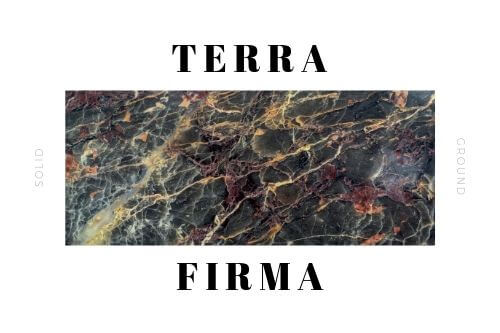
YouTube / iTunes / Spotify / Radio Public / Pocket Casts / Google Podcasts / Breaker / Overcast
Listen to ArtisanEnglish.jp posts & lesson intros here.
WotD: Terra firma
I know, I know all about it: Latin again.
Terra firma is Latin and means solid or dry land.
Hey, amigo, English is not a single language.
It’s a catch-all of every language which was, is now or is very rarely spoken on Earth.
Yes, some people may consider Latin a dead language, but some of it still lives on in English.
Today’s post deals with one of those terms which continue to live on.
If you’re stuck on a boat during a storm, you’ll be delighted to be back on terra firma again.
Any port in a storm, as the idiom goes.
Terra firma, you see, means solid land.
People often use Terra firma after a bad experience on the sea, in the air, or even in space.
The next time you hear about a rough airplane trip on the news during which the passengers experienced some strong turbulence, notice how happy they are to be back on good old terra firma again.
You may even see some of them kiss the ground as they disembark from the plane.
For those living in Japan, terra firma doesn’t have quite the same meaning as it does for those who live on other areas of the Earth.
You see, solid land here could be firmer.
It shakes here – a lot.
The land here can seem very wiggly and even fluid at times.
It’s impossible for me to tell you how many earthquakes I’ve experienced.
Of course, 99.9% of them have been relatively small-level ones, twos and threes.
I have felt one or two level four or five minuses in my time here, though.
It’s a strange feeling when you first come to realize that terra firma is not as firm as you thought it was or you think it should be.
Any day when terra firma in Japan is precisely that is a good day.
Flesch-Kincaid Readability Test
This post is understandable by someone with at least a 7th-grade education (age 12).
On the Flesch-Kincaid reading-ease test, this post scores 79.
The easier a passage is to read, the higher the score on a scale of 0 – 100.

